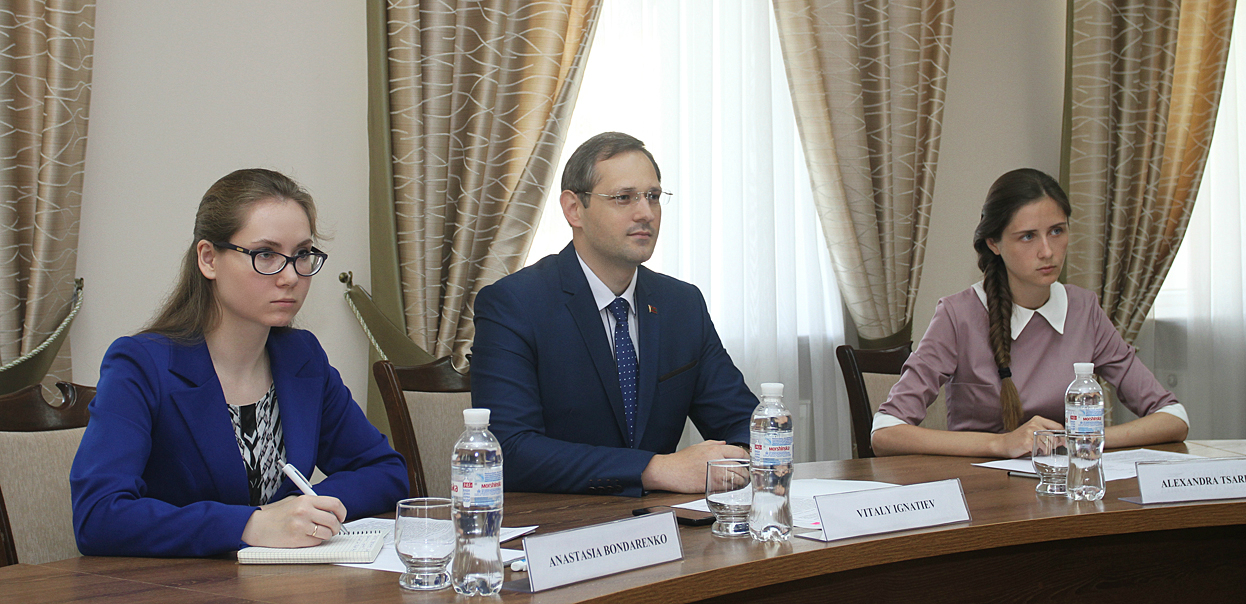The Foreign Ministry hosted a meeting between Acting Minister of Foreign Affairs of the PMR Vitaly Ignatiev and Ambassador Extraordinary and Plenipotentiary of the Czech Republic to the RM Zdenek Krejci, who visited Pridnestrovie today for the first time since his appointment.
Welcoming the guest, Vitaly Ignatiev stressed out that Pridnestrovie and the Czech Republic have a significant positive experience of cooperation in the humanitarian, economic and trade area, including on the track of SPSU and the Chamber of Commerce of the PMR. The Foreign Minister noted that Pridnestrovie is traditionally open to communication on the promising areas of cooperation.
“These are primarily cultural dimension, social, humanitarian, educational cooperation and, of course, trade cooperation as the European Union is one of the main trade and economic partners of Pridnestrovie. Our products not merely comply with the European criteria in many ways but also are competitive in the EU market” – stated the diplomat.
During the conversation, Vitaly Ignatiev told the Czech diplomat about the current situation in the negotiation process with a focus on the outcome of the “Permanent Conference...” meeting in the 5+2 format, held in Berlin on June 2-3 this year. Specifically, the Head of the PMR’s MFA noted that in 2012 Pridnestrovie proposed to follow the small steps tactics in the talks with a view to a phased settlement of socio-economic issues, creating an atmosphere of trust and background to proceed to more comprehensive problems. However, according to Vitaly Ignatiev, in recent years, the work in this direction was in fact blocked because of discriminatory unilateral steps against Pridnestrovie by the Republic of Moldova as regards politically motivated prosecution, economic sphere, road and rail transport and freedom of movement.
In this context, the Foreign Minister highly assessed the Protocol signed following the meeting of “Permanent Conference...” in Berlin, noting that the document actually returns the parties to the cooperation in the framework of small steps tactics and forms the background for the concrete work to address urgent problems in people’s lives.
At the end of the meeting the sides agreed to keep direct contacts on issues of mutual interest.








